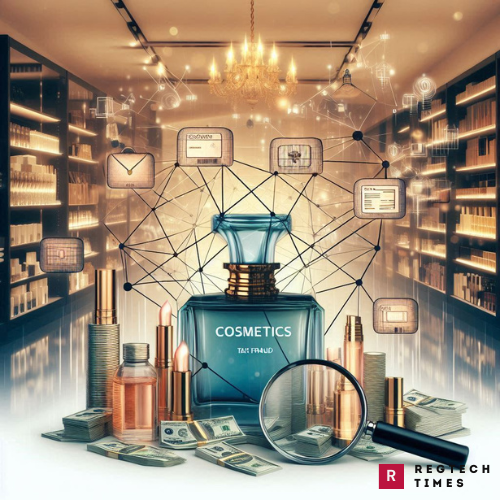The cosmetics tax fraud case in Rome reveals a complex VAT evasion scheme involving shell companies and fake transactions. Alleged international money laundering in Azerbaijan, Switzerland, and the UAE adds complexity. With over €3.6 million seized and significant losses to EU and national budgets, this case underscores the need for robust oversight and cross-border cooperation to combat financial crimes and safeguard public funds.
The Suspected Cosmetics Tax Fraud
The company under investigation, based in Rome, operates in the wholesale perfume and cosmetics sector. It is suspected of evading VAT payments using a network of shell companies and fictitious tax credits. This cosmetics company allegedly forged invoices for business transactions that did not actually take place, thereby creating a façade of legitimacy while siphoning off funds. This fraudulent activity not only undermines trust in the business sector but also deprives the government of much-needed revenue.
International Money Laundering in the Cosmetics Tax Fraud
The suspect is believed to have laundered part of the unjust profits in Azerbaijan, Switzerland, and the United Arab Emirates. This international dimension adds a layer of complexity to the case, highlighting the need for cross-border cooperation in tackling such crimes. Money laundering is a serious crime that fuels corruption, facilitates economic instability, and undermines the integrity of financial institutions.
Impact on EU and National Budgets
The illicit activities of this cosmetics company are estimated to have caused a loss of over €2 million to the EU and national budgets in unpaid VAT. This is a significant blow to the public coffers, especially at a time when funds are needed for various social and economic recovery programs. Tax evasion on such a large scale can have a detrimental impact on the economy, leading to reduced public services and an increased tax burden on law-abiding citizens.
Unlawful Access to Loans
In addition to tax evasion, the company is also suspected of unlawfully accessing substantial loans. These loans, backed by public guarantees provided by EU funds designed to support small and medium-sized enterprises (SMEs), were granted by several credit institutions upon the submission of falsified documentation. This fraudulent obtaining of EU-backed loans from the banks has resulted in a loss of an additional €1.6 million. Such fraudulent activities not only harm the financial institutions involved but also undermine the credibility of the EU’s support programs for SMEs.
Seizure of Assets in the Cosmetics Tax Fraud
Over €3.6 million is being seized, according to an order by the judge for preliminary investigations by the Court of Rome. This action is a clear signal of the authorities’ determination to clamp down on financial crimes and ensure that those who exploit the system for personal gain are held accountable. The seizure of assets sends a strong message to potential fraudsters that crime does not pay and that the authorities are committed to ensuring justice.
This case serves as a stark reminder of the challenges faced by authorities in combating tax fraud and money laundering. It underscores the importance of robust financial systems and stringent oversight mechanisms to prevent such fraudulent activities. While the suspect is presumed to be innocent until proven guilty in competent Italian courts of law, this case has undoubtedly put the spotlight on the need for greater transparency and accountability in business operations. It is a call to action for all stakeholders to work together to foster a business environment that is fair, ethical, and compliant with the law.
In conclusion, the cosmetics tax fraud case in Italy is a wake-up call for businesses and regulators alike. It highlights the urgent need for stronger measures to combat financial crimes and safeguard public funds. As the investigation unfolds, it will be interesting to see what lessons can be learned and how they can be applied to prevent similar incidents in the future.


